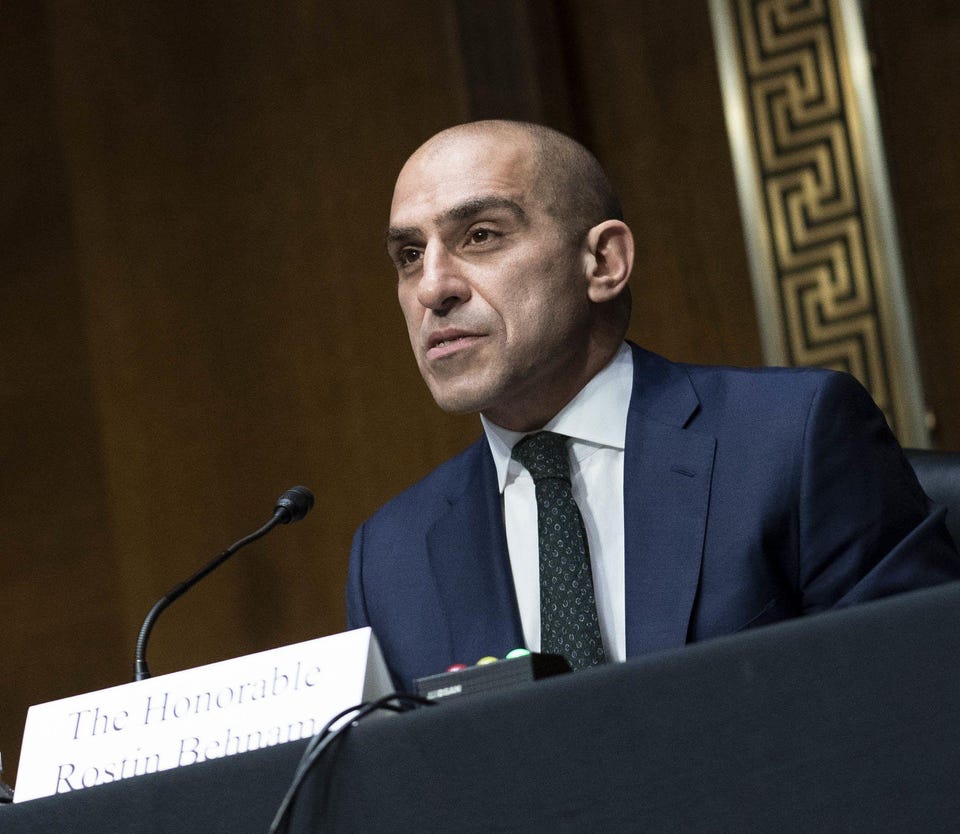Forbes Digital Assets Are U. S. Crypto Regulators Staking Out Territory Via Enforcement Actions? Jason Brett Contributor Opinions expressed by Forbes Contributors are their own.
I write about blockchain regulation and policy. Following New! Follow this author to stay notified about their latest stories. Got it! Sep 23, 2022, 12:17am EDT | Share to Facebook Share to Twitter Share to Linkedin As regulatory enforcement actions unfold between the Securities and Exchange Commission (SEC) and the Commodity Futures Trading Commission (CFTC), the latter just subtly claimed Ethereum (ETH) and DAI, a stablecoin backed by other crypto tokens, as digital commodities.
The manner in which these two tokens are now being asserted is the crux of what may be a jurisdictional battle between the two agencies over who gets to regulate crypto. With the latest CFTC action, the Ooki DAO complaint that was issued today involving complex legal arguments regarding whether the holders of governance token holders who vote in a DAO are liable, quietly under the surface the complaint labels the tokens on the Ooki exchange as commodities which gives the agency the necessary jurisdiction to file the complaint. Similarly, the SEC v.
Wahi case against individuals who were accused of insider trading of tokens on the Coinbase exchange saw nine tokens labeled as crypto asset securities. Washington, D. C.
, USA- January 13, 2020: Entrance of the U. S. Commodity Futures Trading Commission .
. . [+] (CFTC) at its headquarters in Washington, an agency of the US government.
getty In fairness, both of these regulators are facing instructions from the White House from the first-ever crypto framework introduced last week as part of Executive Order 14067. In the framework, the Biden Administration calls for, “. .
. regulators like the Securities and Exchange Commission (SEC) and Commodity Futures Trading Commission (CFTC), consistent with their mandates, to aggressively pursue investigations and enforcement actions against unlawful practices in the digital assets space. ” However, the need for each agency to issue enforcement actions may also create the opportunity for each of the regulators to stake out their claim over which portion of the crypto ecosystem they will regulate in the future.
While Ethereum (ETH) is already widely considered as a digital asset commodity, DAI is definitely more interesting with a great deal on the line for the MakerDAO Foundation that created the stablecoin as to whether DAI is a security or a commodity. DAI argues that their stablecoin is not ‘algorithmically backed’ but rather collateralized by other crypto tokens. This is different than Tether, which uses U.
S. dollars and its equivalents to back stablecoins, that was also claimed as a digital commodity in a complaint from the CFTC last year against Tether. What is critical now is that if these enforcement actions are the method by which certain tokens are claimed as either digital commodity tokens or security tokens by the SEC and CFTC, it would mean some may interpret the CFTC has just determined that DAI is now a digital commodity and not a security.
MORE FOR YOU Google Issues Warning For 2 Billion Chrome Users Forget The MacBook Pro, Apple Has Bigger Plans Pfizer Tests Pill That Could Prevent Covid Infection In a recent report from the Congressional Research Service (CRS) titled ‘ Stablecoins: Legal Issues and Regulatory Options ’, SEC Chairman Gary Gensler was quoted as saying, “. . .
that some stablecoins may qualify as “securities” under federal law—a designation that would subject issuers to registration and reporting requirements. ” Specifically, the report highlighted how Gensler explained the SEC would claim these stablecoins as securities if the token is part of an investment contract or whether the stablecoin may represent ‘notes’. Meanwhile, it still seems that neither the SEC or CFTC have provided guidance that would help clarify the landscape for whether digital tokens are securities and commodities, leaving the current business environment for the industry difficult and stressful to navigate.
With only a week left before the end of the U. S. Government’s fiscal year, at a time when U.
S. regulators tend to issue enforcement actions prior to year-end, the pressure of whether a particular token project might get caught up in the current approach of ‘regulation by enforcement’, the industry will likely be on edge for any further complaints that may be issued by either regulator. Follow me on Twitter or LinkedIn .
Check out my website . Jason Brett Editorial Standards Print Reprints & Permissions.
From: forbes
URL: https://www.forbes.com/sites/jasonbrett/2022/09/23/are-us-crypto-regulators-staking-out-territory-via-enforcement-actions/



